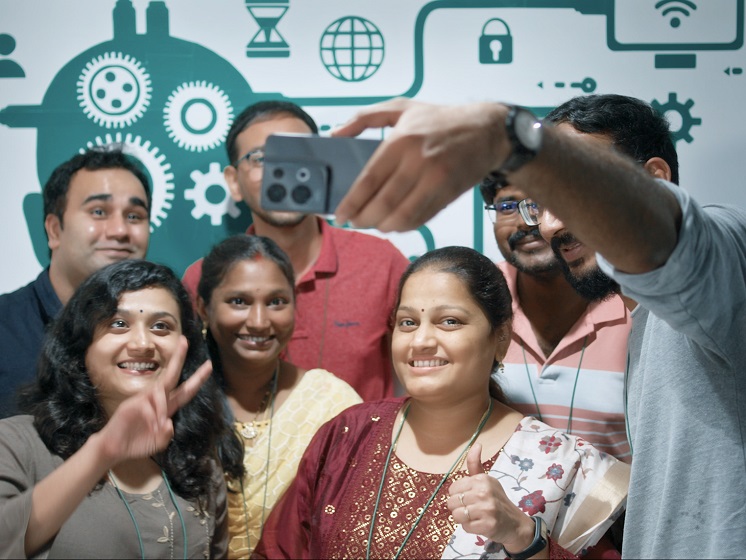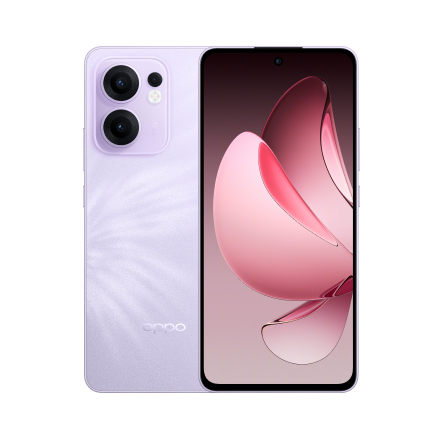
As her daughter headed out, Saritha (Principle Engineer of Camera Innovation in OPPO India R&D) picked up a Bindi and gently put the red dot on the child's forehead, in a gesture of a mother’s infinite love. Bindi is the traditional colored dot worn on the center of the forehead in between the two eyebrows, which holds very important significance in Indian culture. It symbolizes good luck and prosperity. However, in photos, standard beauty algorithms register it as an unwanted spot and either removes it or brings in a filter to “fix” the color aberration.

Male engineers have paid little attention to this detail – it is a small detail, but a significant one from the perspective of women. However, as a female engineer at OPPO India, Saritha discovered the issue with keen eyes. With her lead, OPPO India's testing department realized that Bindi can only be seen on the camera screen, but not after the image has been captured. In order to preserve this symbol of good luck and the Indian cultural tradition it carries, Saritha began to analyze the problem – how can the image algorithm help enhance beauty and keep Bindi clearly visible when photos are taken? Over and over again, she and her female colleagues used smartphones to take selfies, zooming in to catch every small detail and carefully examining the image quality of the Bindi in these photos. She coordinated the workflow of this project among various departments, traveling from one corner of the company to the other to communicate and propel its progress.

Saritha led the team as they analyzed and compared results from different phone models, testing their imaging effects again and again according to the color of the Bindi and to changes in the surrounding light sources. With the dedicated effort of Saritha and the team, the image quality of each facial area was optimized, frame by frame. After over a month, the team finally found a breakthrough and built it into the algorithm, finding a way to protect the tradition of Bindi and helping to reveal the unique beauty and strength of Indian women.
Additionally, Saritha also collected data on the skin tone preferences of people across various regions in India, which was used for photo-taking optimizations based on region – inspiring more people to take selfies and greatly increasing their personal satisfaction with the resulting images. Overall, OPPO India’s photo-taking algorithm had become more localized and user-friendly.

As a mother of two, Saritha has said that switching between work and family life can be challenging. “After becoming a mother, I can say that the balance is indeed very difficult to maintain,” she said. She had devoted herself to her family for six years before returning to the workplace, and once she did, Saritha said she was able to quickly find her footing and pursue her ideals and goals. The confidence and independent spirit she carries today is rooted in the values of her own family.
When Saritha was a child, her mother raised her to believe that knowledge is power. Even if the family lived under less-than-ideal conditions and, as a whole, studying engineering is not so common among females, Saritha’s mother ensured that she received a good education – which led to her training and specialization as a rare female engineer within the male-dominated field. Now, Saritha also passes on this education-centric concept to her daughter.

There are many women at OPPO who hold various roles, as a mother, daughter or wife, but they also hold another shared identity: OPPO engineer. In the past 18 years, the proportion of OPPO’s female engineers has increased year by year.
Elsewhere in the world, OPPO is also tapping into and supporting women's empowerment. For instance, in collaboration with fashion magazine Vogue Mexico, OPPO shot a series of feature films about 7 women from different social backgrounds. Some of them are committed to environmental protection, while some of them are dedicated to educational initiatives – but what they share is the daring to overcome difficulties and courage to challenge the status quo. Likewise, now that OPPO has reached 18 years old, we hope that this moment will also mark a new beginning for the brand to further explore the unique power of women. In the future, OPPO will continue to further enhance the camera to capture their genuine confidence and beauty.
To watch the documentary of Saritha Bandaru, please visit https://youtu.be/cnHv_f54ixM.




















